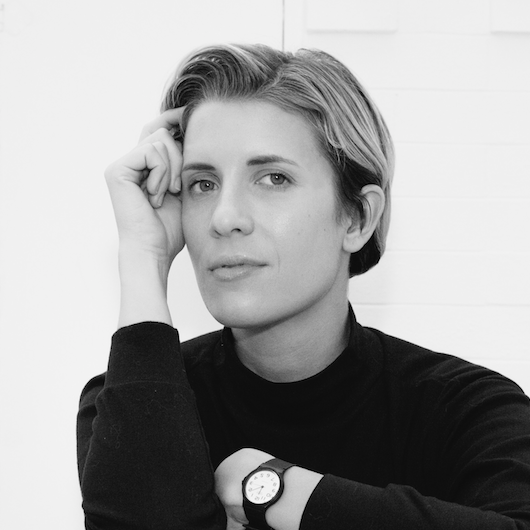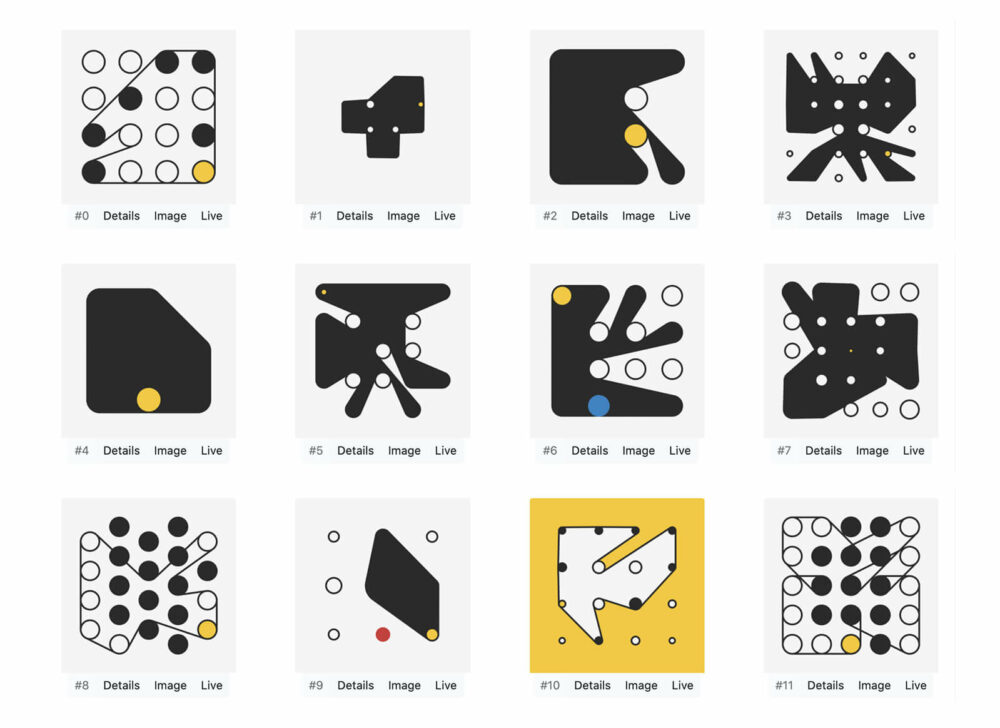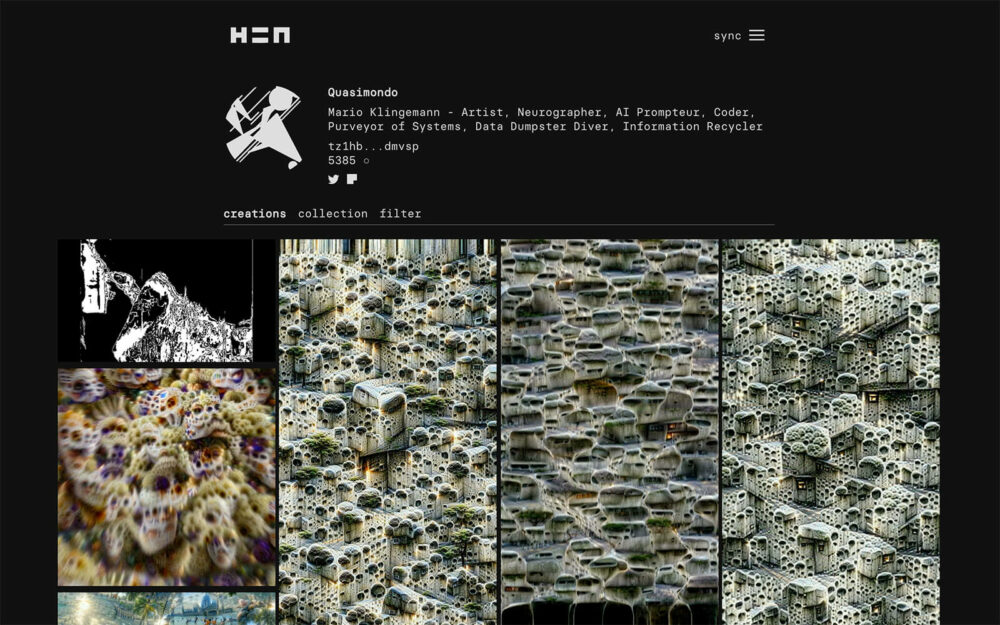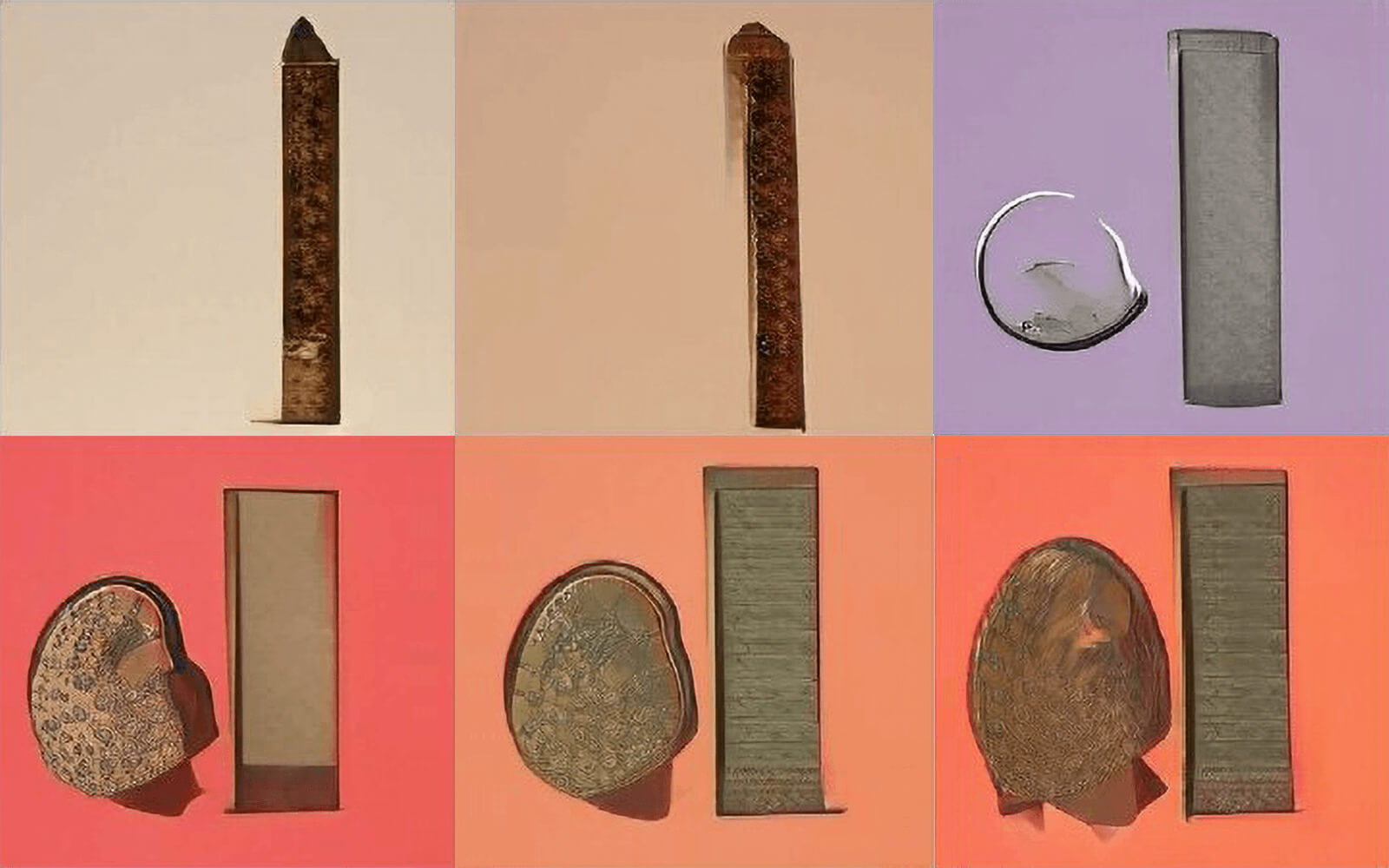MUTEK Recorder: Monetizing Digital Art
Panel
Monetizing Digital Art: What has Changed with NFTs?
Speakers:
Eliane Ellbogen, Elena Zavelev, Cadie Desbiens-Desmeules, Ryan Stec, Joseph Cutts

Profile:
Eliane Ellbogen
Eliane Ellbogen is an intellectual property lawyer with business law firm Fasken, and focused on information technology. She advises and represents clients in complex, high-profile patent, trademark, copyright and trade secret matters
Takeaway:
In this boom phase, NFTs prompt far more questions than answers. The lack of standardization around copyright and the durability of the work are thorny issues for both artists and buyers alike. We’re truly making up the rules as we go, thus far.
Precedent:
Beyond all the noise made about Beeple’s $69 Million Everydays sale, Dmitri Cherniak’s Ringers has become one of the most influential blockchain-based pieces of art to emerge during the NFT boom. Hosted on the Art Blocks platform, and sold in an edition of 1,000, the project’s simple generative grammar of grids, cylinders, bands, and colour captured the imagination of fledgling crypto art collectors by offering a more abstract example of what blockchain-based art could be. Distinct from the JPEGs, GIFs, and HD imagery that populate many platforms, works like Ringers (and the projects on Art Blocks, in general) illustrate how the hash data of the minting process—the transaction—can become data that shapes the work.
Soundbite:
“An NFT is a bundle of rights. You can use it, access it, control it, destroy it. It is not necessarily the associated artwork, which may surprise many folks. It’s a digital signature that points to the artwork on a third party platform or decentralized server.”
Eliane Ellbogen, giving a snapshot of the legal perspective on NFTs
Soundbite:
“One thing I see as potentially revolutionary in NFTs is the artist’s resale rights. Where a portion of secondary sales are redistributed back to the original artist.”
Eliane Ellbogen, on where she sees the most potential artists in the burgeoning NFT market

Soundbite:
“Perhaps the only authentic crypto artist is the one who engages smart contracts as a material in their practice.”
Ryan Stec, sidestepping a question to define who/what a crypto artist is
NFT Marketplace:
Founded by Brazilian software engineer Rafael Lima in March 2020, Hic et Nunc has emerged as a NFT platform favoured by artists. Unlike its Ethereum-based peers, it’s built on the inexpensive proof-of-stake cryptocurrency Tezos, solving some of the issues of access and waste associated with older blockchains (gas fees for Ethereum transactions can cost $100 USD and up, pricing some folks out of participating). The platform has also nurtured a friendly and enthusiastic collector class, and compared to venture capital-backed NFT Gateway and OpenSea the difference in mood and atmosphere is palpable. The platform will lean into what makes it unique in the future as plans are afoot to invite power user artists and collectors to participate in its governance.
Image: Hic et Nunc profile of AI artist Mario Klingemann
Image: Hic et Nunc profile of AI artist Mario Klingemann
Number:
$939,357.86 USD (292.45 ETH)
Ethereum gas fees for NFT transactions on OpenSea this afternoon (data courtesy of Ether Scan Gas Tracker)
Fave:
“How can we leverage NFTs but not reproduce the same power structures that already exist and without widening the gap between those that succeed and those that don’t?”
Artengine Artistic Director Ryan Stec, on using technology to improve all artists’ lives

Commentary:
Elena Zavelev makes a great point about the role of community in the NFT marketplace. To me this is most novel aspect of crypto-art: artists are collecting one another left and right, at a scale and with a vocal enthusiasm you just don’t see in the traditional art marketplace, which is too financially prohibitive for the kinds of smaller-scale, armchair collectors that are the lifeblood of the NFT markets. On Hic et Nunc, for example, artists regularly sell inexpensive editions, which makes owning their work accessible to a much broader group of people. I’ve written about how these inexpensive editions—and the relative exchange rate of cryptocurrencies around the world, relative to the cost of living—has opened up new economic realities for artists in the Global South. There are massive crypto-art scenes in Brazil, Malaysia, Turkey, and the Philippines. I find that extraordinarily exciting.
MUTEK Recorder
MUTEK RecorderExplore more of "MUTEK Recorder:"
→ HOLO.mg/stream/
→ HOLO.mg/mutek-recorder/
Alexander Scholz
Alex is a Berlin-based writer, artistic director, and cultural worker. As the founder and creative director of HOLO, he helps produce and disseminate knowledge on disciplinary interstices, artistic research, and cultural transformations in the digital age. Over the years, he curated exhibitions, conferences, and educational programmes for organizations and festivals including A.C.C. (KR), Mapping (CH), MUTEK (CA), and NODE Forum for Digital Arts (DE).
Claire L. Evans
Claire L. Evans is a Los Angeles-based writer and musician exploring ecology, technology, and culture. She is the author of Broad Band: The Untold Story of the Women Who Made the Internet (2018) and the singer of the Grammy-nominated pop group YACHT. A prolific essayist, her writing has recently appeared in outlets including GROW, MIT Technology Review, and The Verge.
Greg J. Smith
A writer and cultural worker based in Hamilton, Canada, Greg is an editor for HOLO and his writing has appeared in publications including Creative Applications Network, Musicworks, and Back Office. He is also a PhD candidate within the Department of Communication Studies and Multimedia at McMaster University, where he is researching the emergence of the programmable drum machine in the early 1980s.



